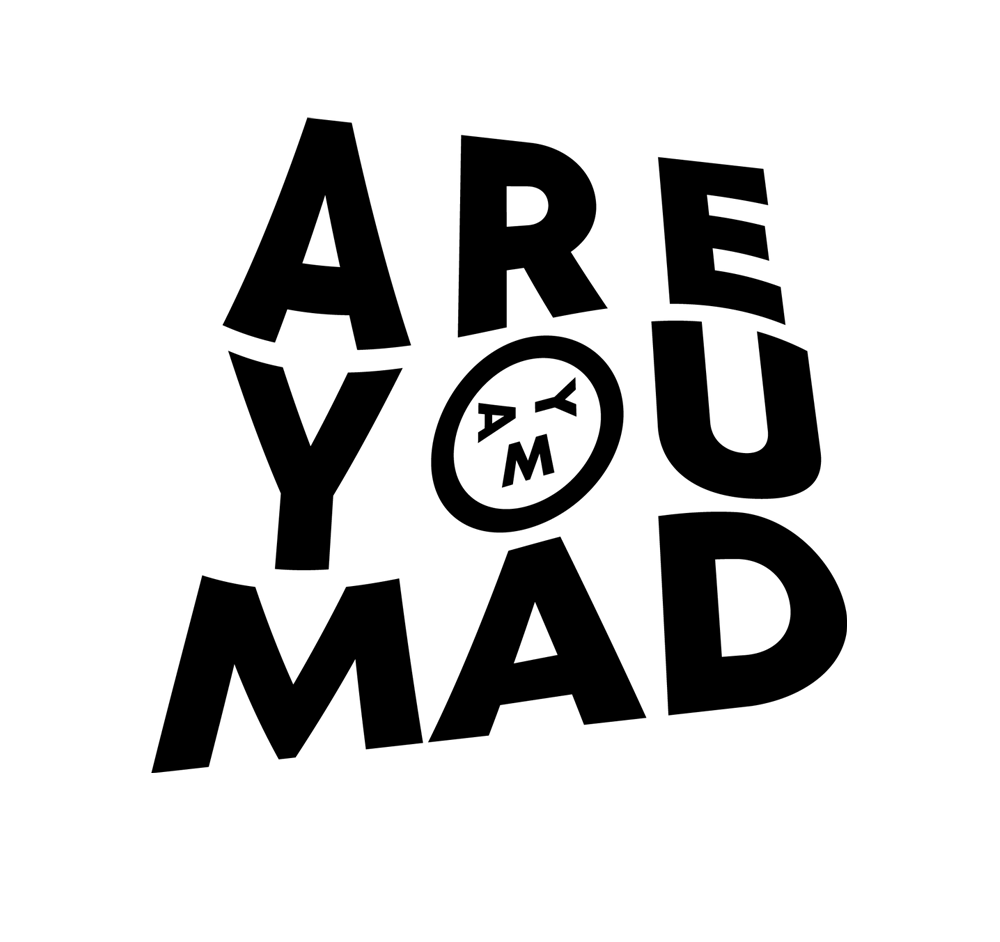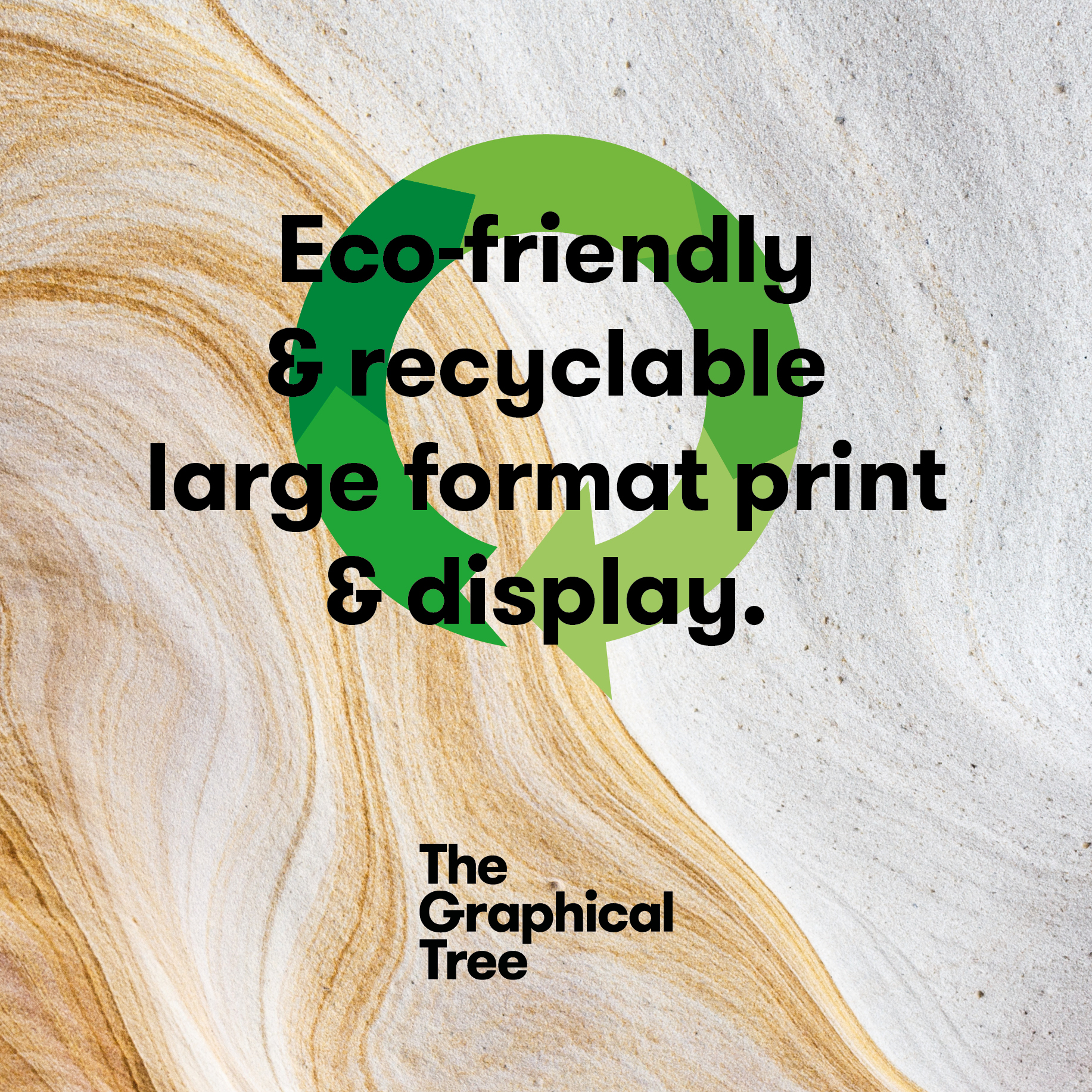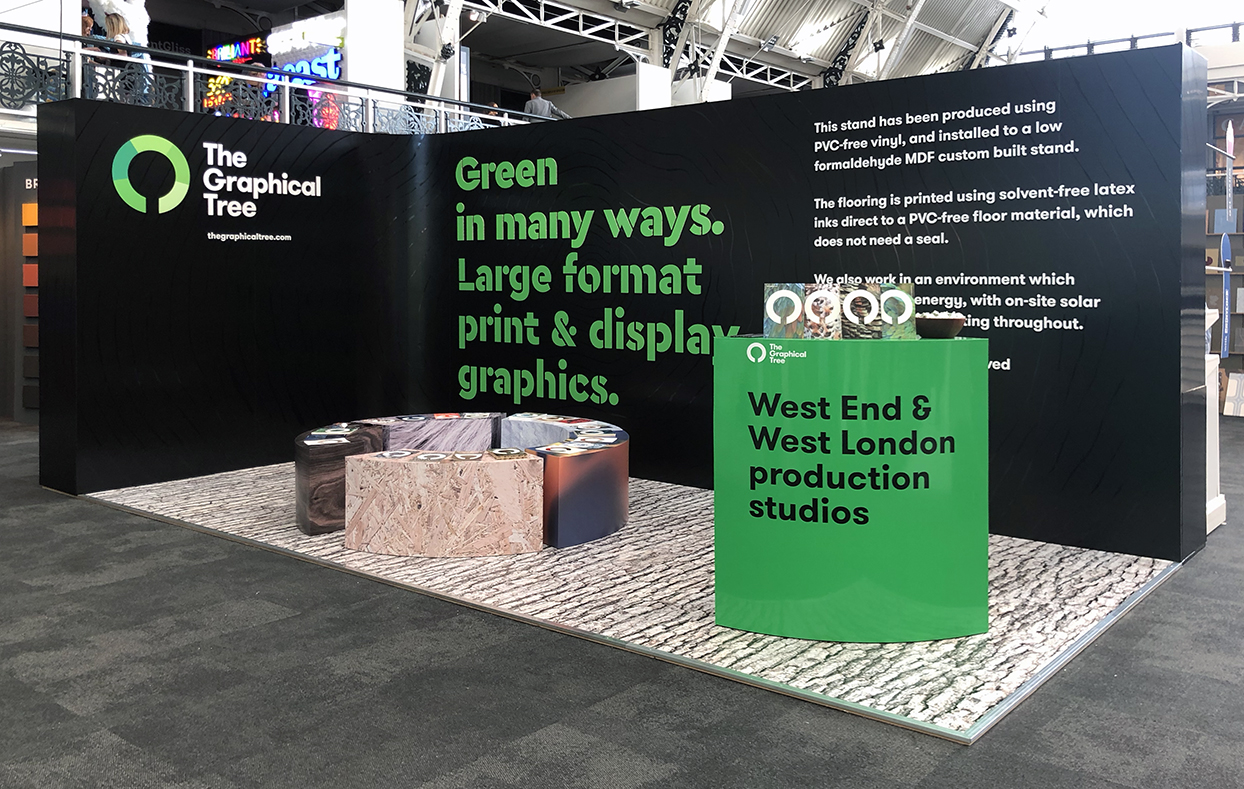
Minimizing our impact on the environment is a responsibility we should all take seriously. Our commitment to eco-printing, sustainable materials and graphics is part of this.
Our production technology has been chosen based on its environmental credentials. Most of our printers use water-based ink which gives us a great platform to start from.
Thankfully more and more eco-friendly printing products are being developed and available all the time. This means the cost to produce environmentally friendly print graphics is also getting cheaper. It used to be a prohibitive exercise, but thankfully, as the world wises up to the importance of a more sustainable way of living, possibilities for greener materials and substrates are becoming easier to source and use.
Also, because of our W1 location, we can often use cycle couriers to deliver local jobs to the myriad of retailers and brands we service in Central London.
The list below covers some of our practices and sample products to help get you thinking. If you have any questions or a project you would like to discuss with us, get in touch. We'd be happy to make an environmentally happy set of graphics for you.
Lastly, if there's a product you're thinking of which isn't mentioned please ask us about it. It's either one we know about and can offer you already, or it's something we'd like to hear about to develop with our suppliers. This is an ongoing, developing part of the large format and display industry, and one we can all contribute to.
We have an obligation to the planet and future generations to be as sustainably forward-thinking as we can be. By continued R&D, and carefully developing a cohesive suite of materials and print solutions, The Graphical Tree aims to offer significant improvements to the large format print industry, in terms of its impact on the planet.
We also have a really useful set of tips for when you're planning your graphics, so learn more about sustainable graphics today.
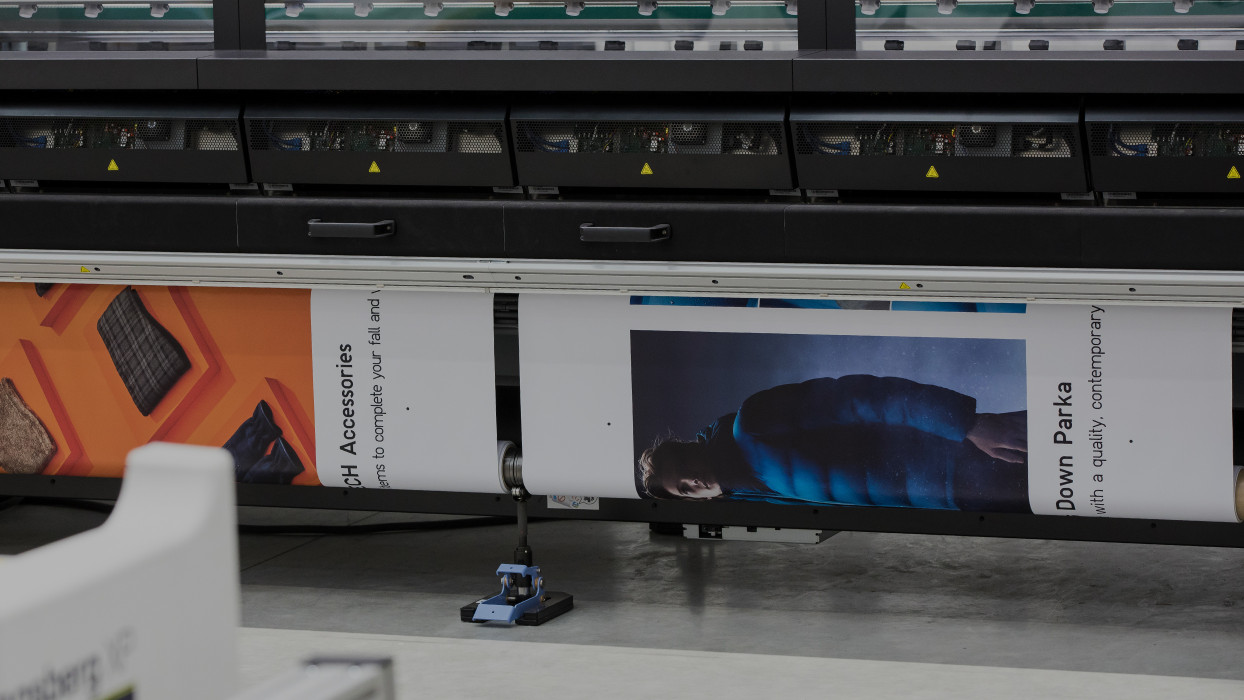
Most of our large format print machinery uses latex inks, which is made up of 70% water, making it a greener option than traditional solvent-based ink. Whereas solvent penetrates into the media, latex sits on top and doesn't react in the same way, which is better for recyclability. Latex is also completely biodegradable, which happens even sooner when exposed to sunlight. Given the right conditions, latex can biodegrade at about the same rate as a leaf from a tree – around six months. Discover eco-friendly latex inks.
Our direct-to-media printer ticks as many boxes as we can for eco-printing. The ink used has been given the environmentally friendly Gold Award from Greenguard. It has a less harmful chemical makeup than many other printers in circulation and includes up to 50% naturally-derived monomers and oligomers from renewable resources, such as plants or biomass. The inks also contain virtually no VOC's, heavy metals, SVHC's or greenhouse gases. Read more about eco-solvent printing here.
An important part of our working practises is to always use safe and reputable products and supply partners. This absolutely applies to the range of eco-products we use – it's important to know the products are manufactured as they say they have been. Latex inks are certified by UL Ecologo and UL Greenguard Gold. To find out more about these certifications and why they are important, read the article about UL Ecologo & Greenguard here.
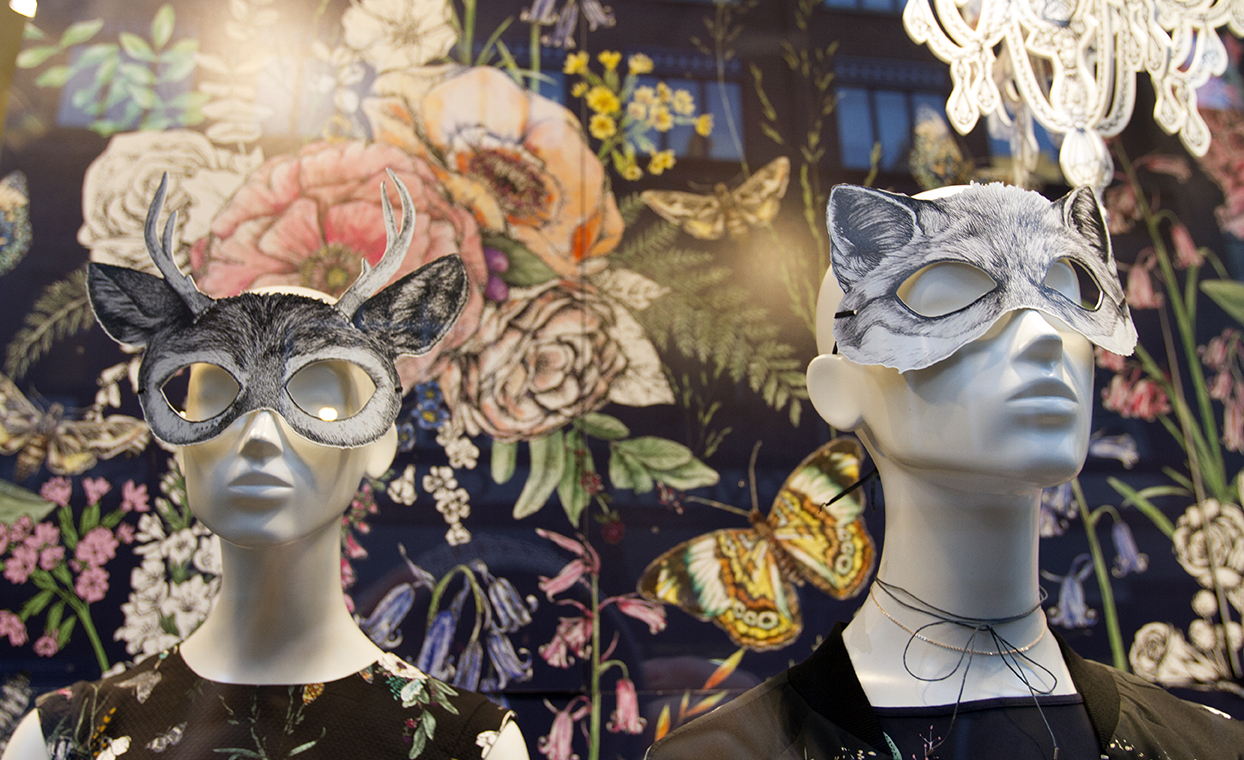
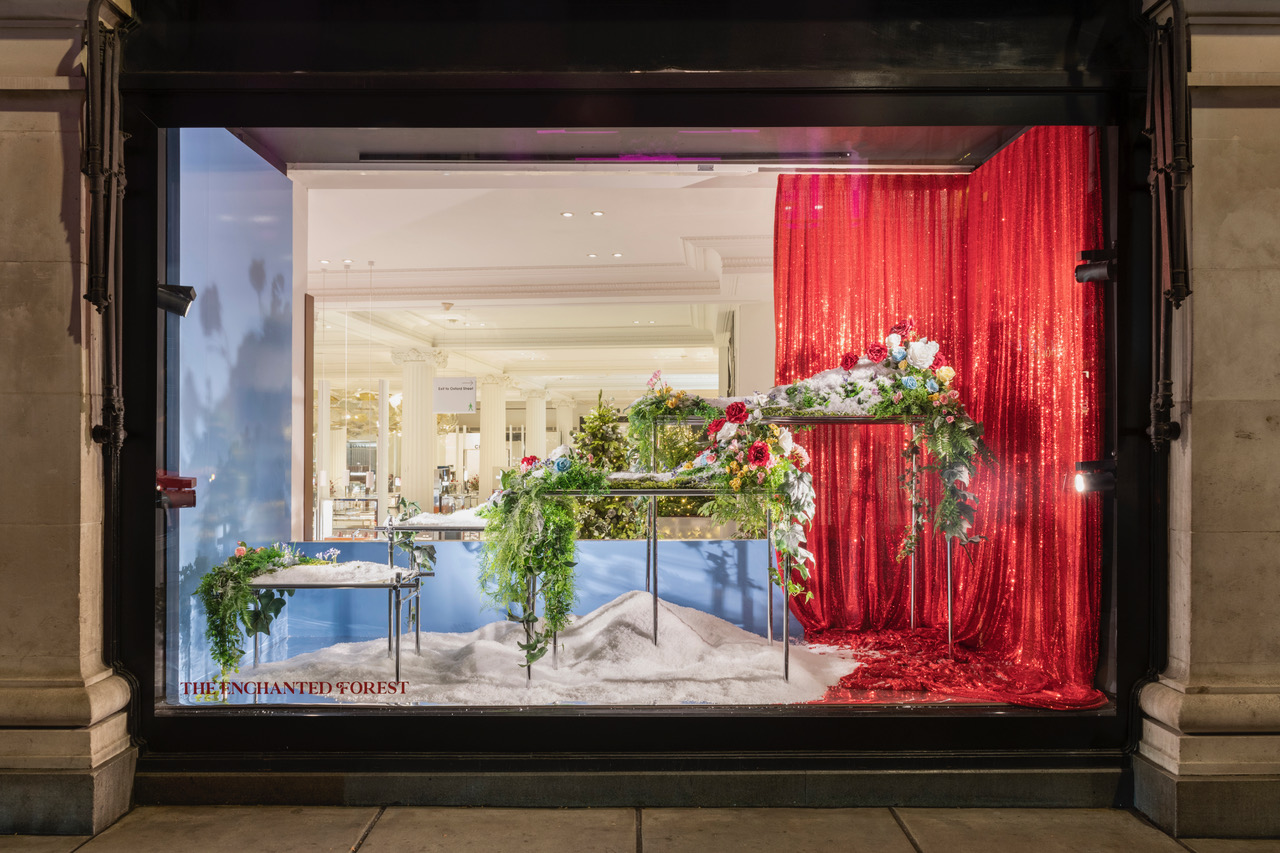
We have a range of fully recyclable or re-usable materials at our disposal that tick the eco-friendly and sustainable boxes. These materials allow us to print graphics for interior or exterior locations and cover the multitude of uses inducing VM displays; exhibitions and events; wall, floor and window graphics; as well as hoardings.
Our list of board substrates is evolving all the time and we add products when we're happy to add something worthwhile to our repertoire, so view our range of paper and fibre-based display boards.
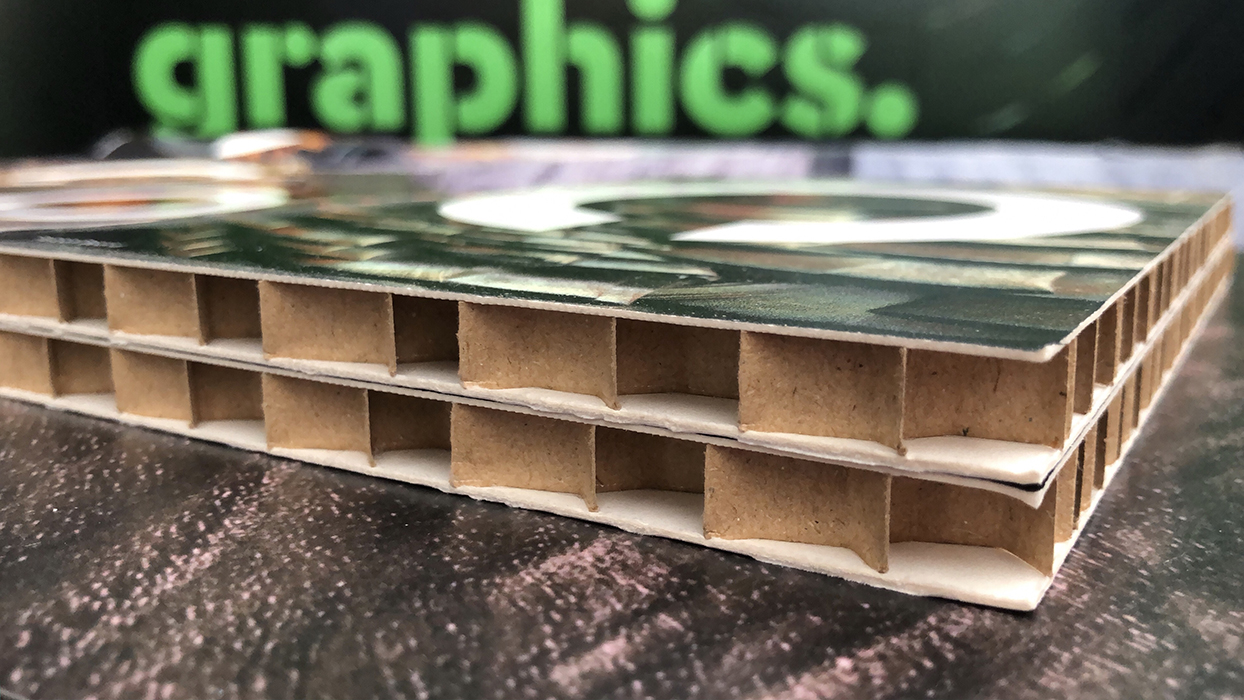
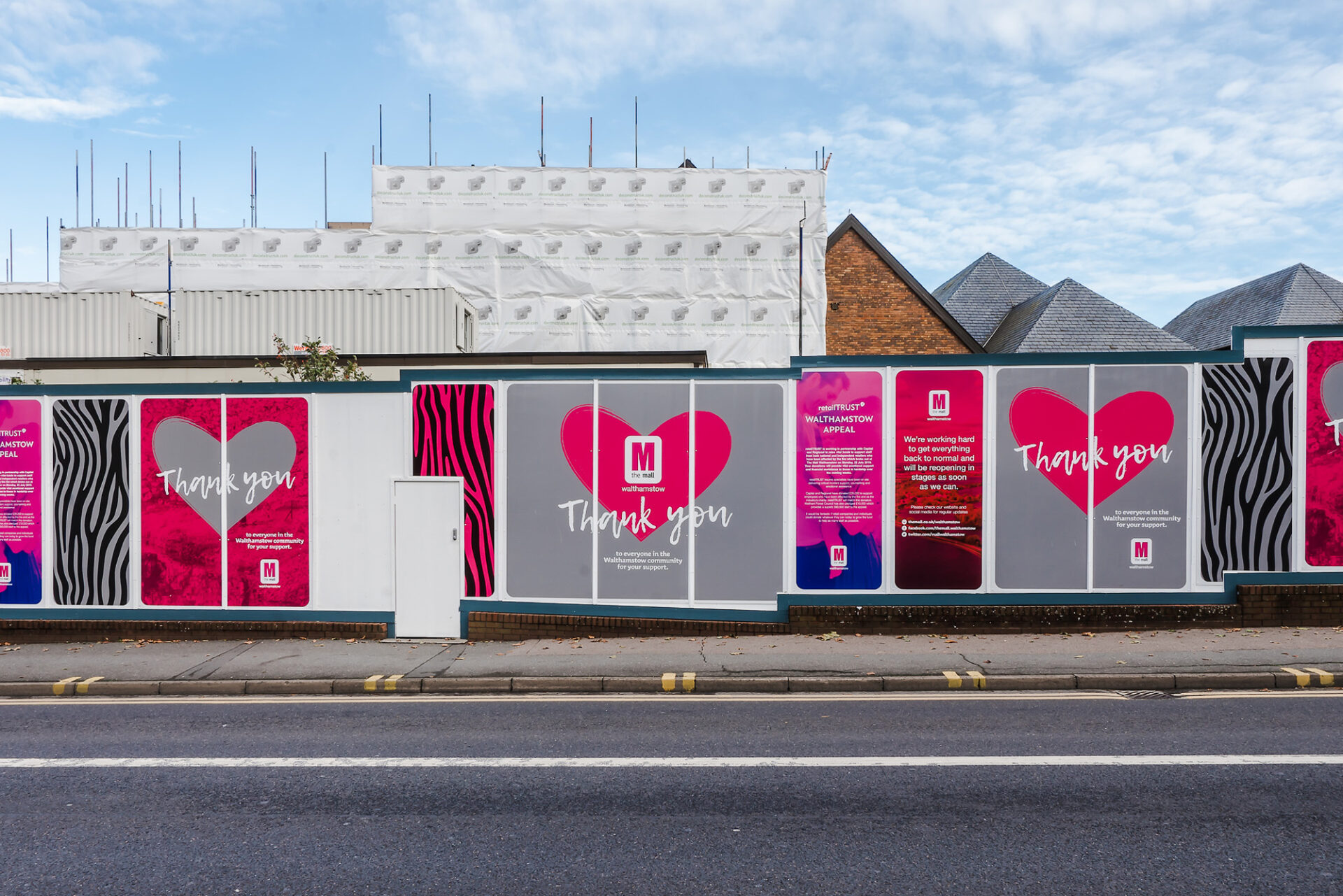
Our Uxbridge production site has on-site solar power which accounts for a good percentage of our energy use, and over both production locations, we contract a sustainable energy provider. Uxbridge and our central London HQ also use LED lighting throughout.
In Central London, we use a waste collection supplier called First Mile, which separates and disposes of all waste in the most eco-friendly way available. This includes burning unrecyclable waste to generate clean energy and collecting food waste for composting, all instead of landfilling. Our West London site's waste is collected by Hillingdon Council, one of just 74 out of 345 local authorities in England that collect dry recyclables.
If we don't think about using sustainable packing materials, really, what is the point of going to the effort to produce your work sustainably? So to compliment our eco print and production we can also offer biodegradable bubble wrap, FSC corrugated card packing and boxes, and recyclable plastic and card corners as well.
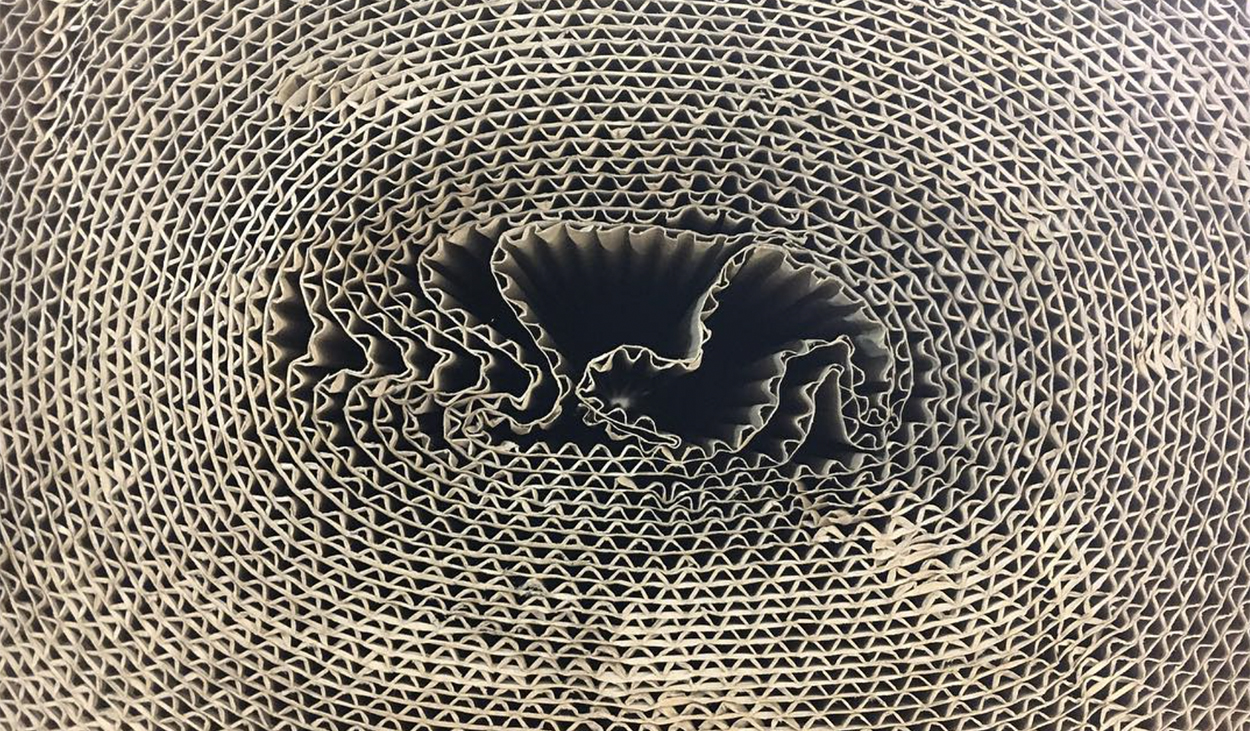
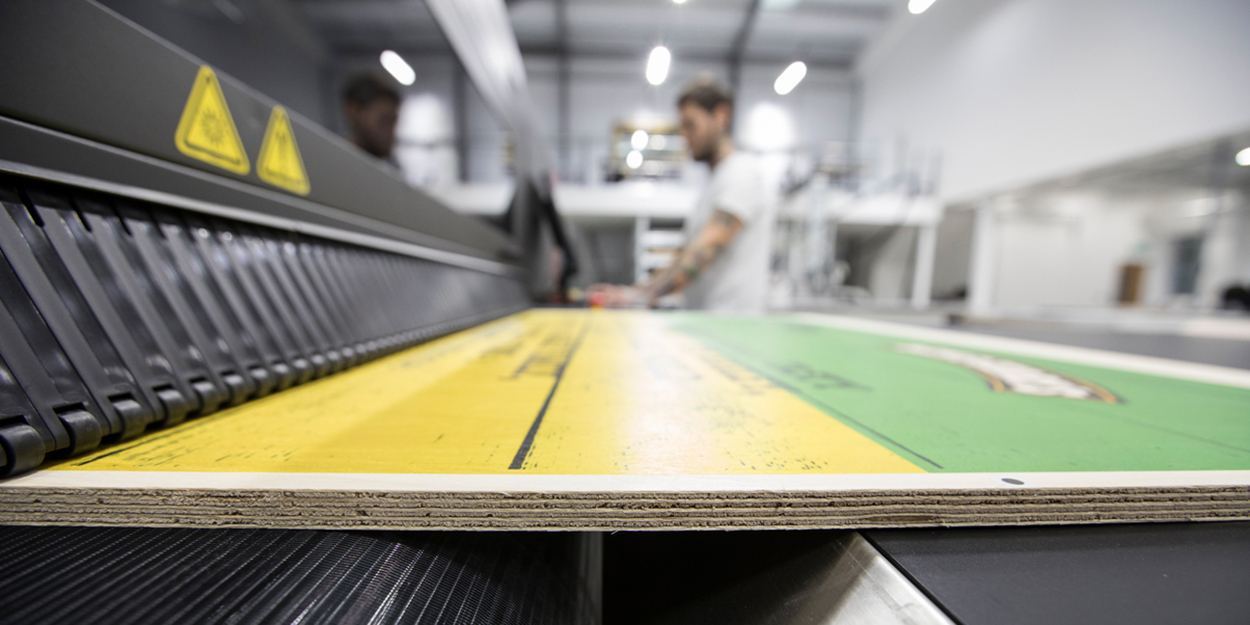
Terminology can always breed uncertainty, so below are details of a few useful environmental terms and organisations mentioned in our product list.
The Forest Stewardship Council – The FSC certification is considered the gold standard designation for wood harvested from forests that are responsibly managed, socially beneficial, environmentally conscious, and economically viable.
The Greenguard Environmental Institute is an industry-independent organization that aims to protect human health and improve the quality of life by enhancing indoor air quality and reducing people's exposure to chemicals and other pollutants. Only products that meet the UL (Underwriters Laboratories) Environment's stringent emissions standards qualify for certification. These standards are based on established criteria from key public health agencies. Read more about Greenguard and Ecologo today.
PolyEthylene Terephthalate is a form of polyester and used to manufacture plastic bottles and containers for packaging foods and beverages, personal care products, and many other consumer products. PET is highly recyclable.
PVC is PolyVinyl Chloride – it's made from fossil fuels including natural gas. The production process also uses sodium chloride. Recycled PVC is broken down into small chips, impurities removed, and the product refined to make pure PVC. It can be recycled roughly seven times and has a lifespan of around 140 years.
This is an initiative called Registration, Evaluation, Authorisation and Restriction of Chemicals, which addresses the production and use of chemical substances, and their potential impacts on both human health and the environment.
Substance of Very High Concern – a chemical substance which has been proposed that its use within the EU is subject to authorisation under the REACH Regulation and the first step in the procedure for authorisation or restriction of the use of a chemical
Volatile Organic Compounds are organic chemicals that have a high vapour pressure at ordinary room temperature. VOCs are numerous, varied, and ubiquitous. They include both human-made and naturally occurring chemical compounds. Most scents or odours are of VOCs.
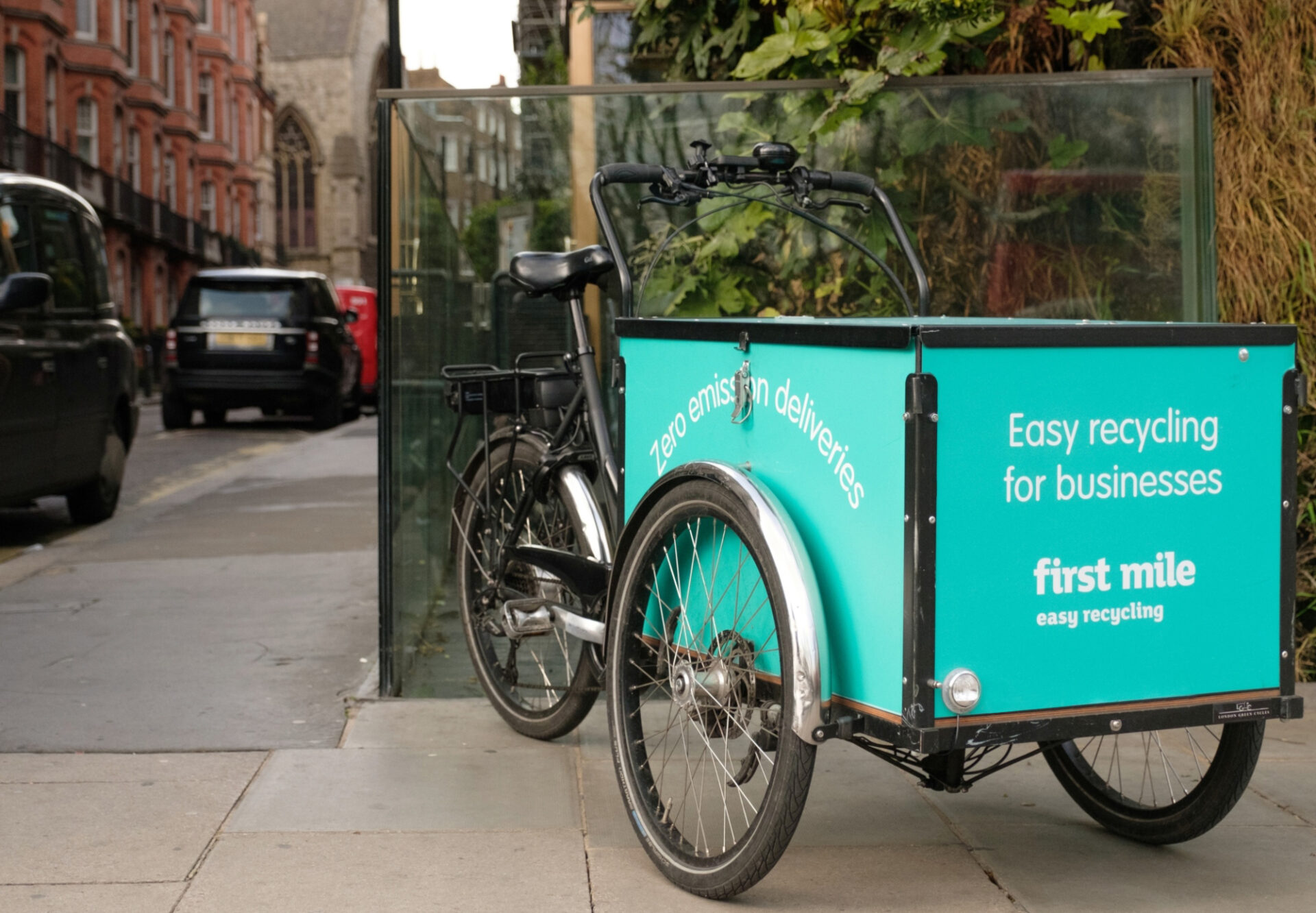
While we absolutely understand that reducing our carbon footprint is better than off-setting it. We have still taken the initiative to partner with Ecologi to mitigate carbon use and support a broad range of projects that are able to evidence that they are reducing or avoiding greenhouse gas emissions.
But it's not just a matter of planting more trees. Ecologi provides offsetting by purchasing and retiring carbon credits, which represent verified tonnes of carbon reductions that have already taken place.
The projects Ecologi buy these credits from go through a rigorous process of accreditation by either the Gold Standard or the Verified Carbon Standard. Ecologi always aim to fund offset projects which meet important sustainability and eco-development standards like CCBS and SDVista.
Once a project is registered and has been issued with carbon credits., each credit represents the reduction, or avoidance, of 1 tonne of carbon dioxide equivalent from entering the Earth's atmosphere. Ecologi buys these credits on behalf of its members, with the money going to the project developers to fund more carbon reduction projects. By retiring a carbon credit, Ecologi ensures that the tonne of carbon emissions it represents is removed from circulation and cannot be accounted for again. This reduces the amount of carbon emitted to the atmosphere by 1 tonne, thereby offsetting 1 tonne of the carbon footprint of one of its members.
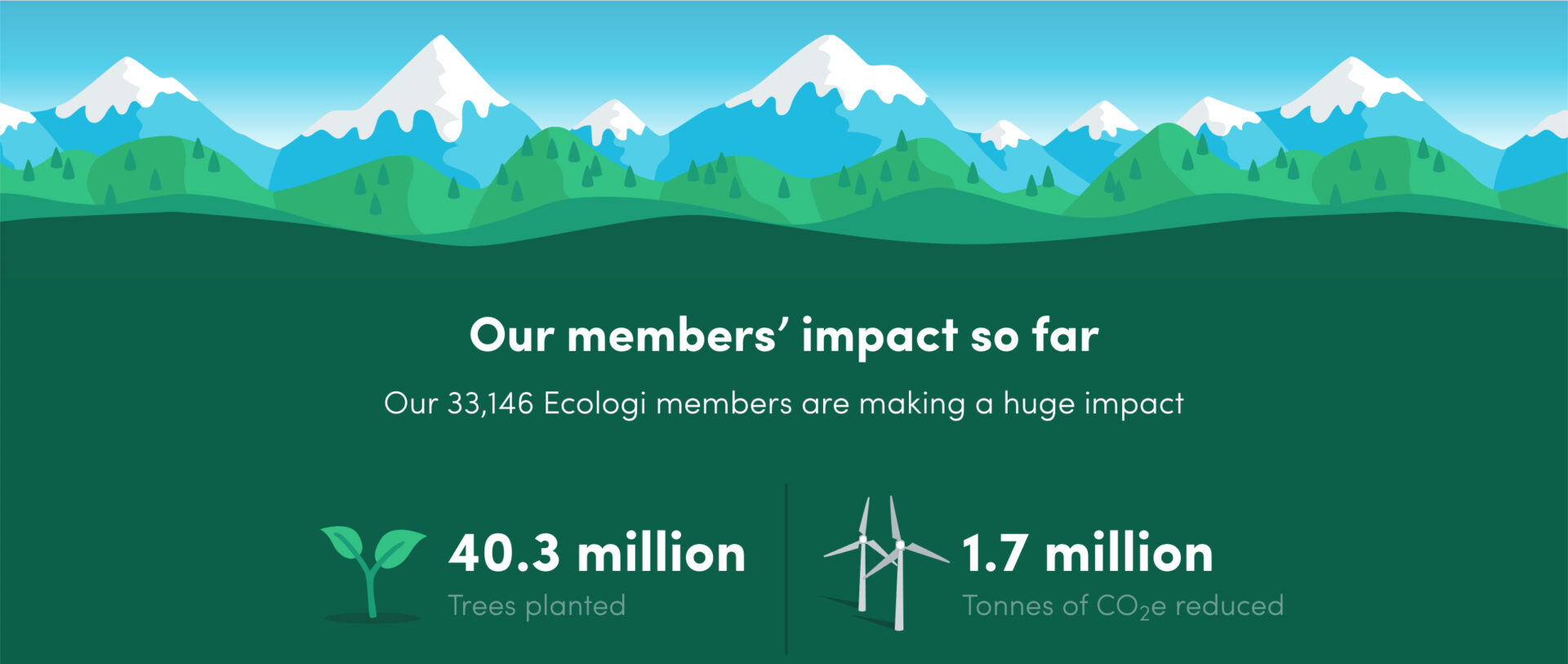
We couldn't do any of this without the help of some our partners, we'll add more as we go along, but for now, let's share a line or two about a few of our partners.
Recognized as one of the world's most sustainable and forward-thinking companies, is it any wonder we choose to work with HP, this giant of large format inkjet technology. They have the bases covered from print machinery, eco inks, to recycling print cartridges. HP also never stand still, constantly evolving and bringing new innovations in sustainability to the field. Luckily for us, and you, our third-party printer supplier is on the HP advisory board so we hear of ideas directly from the source.
The Graphical Tree were asked this year to come on board as a founding print group partner for Isla, an organisation set up to accelerate the events industry to become more sustainable. They, and we, work with agencies and brands, organisers and suppliers providing practical guidance and support on environmental issues, drawing on expertise from across the sector to create a powerful network with the knowledge and confidence to facilitate change.
Our top-of-the-class waste and recycling partner. First Mile has been helping over 30,000 national businesses become more sustainable since 2004 by their progressive and robust circular economy services. They help us reduce our carbon footprint and create energy at the same time – First Mile's Zero-to-landfill policy means all non-recyclable business waste is sent to generate Green energy.
The Graphical Tree is a proud partner of the first closed-loop plastic recycling set-up within urban retail in London. Are You Mad collects plastic from us that would not normally be recycled (foamex offcuts, lids to delivery tubes, etc.) and transforms it into design lead products that are re-sold. This extends the lifespan of a material that would normally be discarded as waste. Perhaps an item will find itself in to your home and you'll have a little bit of The Graphical Tree to enjoy each day.



